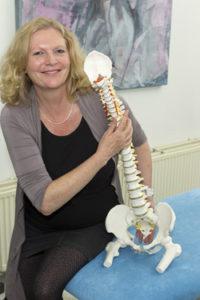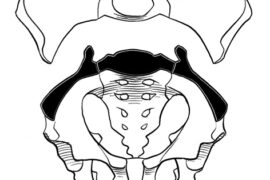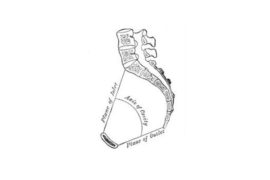Pelvic girdle pain hurts
The reality is that pelvic girdle pain can be significantly improved in pregnancy and postpartum, allowing women to function well and enjoy their pregnancy and postpartum experience.
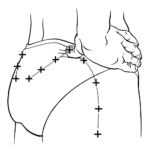
PGP: Often Missed or Dismissed
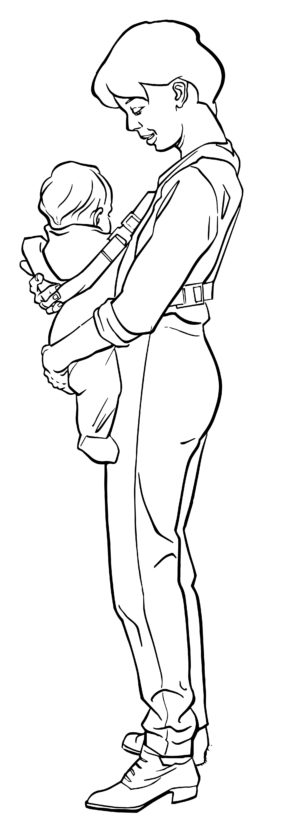 Pelvic girdle pain (PGP) affects many pregnant and postpartum women. PGP impacts daily functioning and quality of life. Unfortunately, symptoms are often not recognized or treated appropriately. A study by Pierce (2012), for example, shows that although 71% of pregnant women told their healthcare professionals about experiencing PGP, and only 25% received any treatment. Many women spoke of how their condition was normalized by their healthcare providers; for example, they were told that back, hip and pubic pain was a normal part of pregnancy and that it would most likely get better after delivery. We know that approximately 45% of pregnant women will develop PGP. If PGP was a “normal” part of pregnancy, than every woman would have PGP, which is not the case.
Pelvic girdle pain (PGP) affects many pregnant and postpartum women. PGP impacts daily functioning and quality of life. Unfortunately, symptoms are often not recognized or treated appropriately. A study by Pierce (2012), for example, shows that although 71% of pregnant women told their healthcare professionals about experiencing PGP, and only 25% received any treatment. Many women spoke of how their condition was normalized by their healthcare providers; for example, they were told that back, hip and pubic pain was a normal part of pregnancy and that it would most likely get better after delivery. We know that approximately 45% of pregnant women will develop PGP. If PGP was a “normal” part of pregnancy, than every woman would have PGP, which is not the case.
It is important that pregnant women with PGP feel validated and have their concerns addressed with adequate treatment, so they can enjoy their pregnancies. Rost Therapy™ is a very effective treatment program with fast and lasting results. Within a few weeks women can often return to normal functioning, work and sports. Only a small percentage of our patients still need treatment after delivery.
Sometimes emotional concerns can affect pregnant or postpartum women with PGP, which can also impact recovery. It is even more important, in this case, to seek care. Rost therapists have a passion for improving the function and quality of life of pregnant and postpartum women with PGP.
Prognosis
It is important to recognize that on the whole, PGP does improve for most women postpartum. Østgaard 1991 found that 1 in 3 women with pregnancy related PGP had no symptoms in the first month after childbirth. However, he also found that at 6 months postpartum, 7 to 18% of women experienced severe PGP symptoms. Although this may seem to be a small percentage, many of these women may develop chronic symptoms, which can lead to years of poor function and quality of life.
Rost Therapy™
Rost Therapy™ is a very effective treatment program (90% success rate), devised by Cecile Röst, which yields quick and lasting results (Rost et al 2006). It consists among others of a home exercise program that improves muscle balance and pelvic joint symmetry, as well certain movement patterns for daily activities which allow women to move without or with much less pain. This program is given to women by trained Rost Therapy™ physiotherapists, after a detailed assessment.
This self-management approach allows women to take control of their symptoms and function. Within a few weeks, most women with PGP using Rost Therapy™ can function normally, and return to work and to exercise. In Cecile’s study (2006), only a small percentage of Rost patients required additional treatment after delivery. This treatment approach is effective for acute or chronic presentations of PGP.
Cecile Röst’s Studies
In 1996, 870 pregnant women were treated with Rost Therapy. On average, they were given three or four treatments during pregnancy and were advised to do their home exercise program and practice the postural advice every day. Of the 430 women at 18 months postpartum follow up (in the study of Röst 2006), only 2 per cent (i.e. 7 women) had severe symptoms at the time of completing the questionnaire. Moreover, at the time of the questionnaire, five of the seven women were either at the end of a subsequent pregnancy or newly postpartum, the sixth woman had depression, and the seventh had not followed the therapy. Compliance and success with the exercise program was high, with 424/430 women reporting benefit from Rost Therapy, and many volunteered to give testimonials to show how happy they were.
Many of the women treated by Rost Therapy became pregnant again. Some experienced signs of pelvic girdle pain again, but followed up with their therapist for one or two refresher sessions. The vast majority of these women soon had their symptoms under control and were able to perform their daily activities. It’s very satisfying as a therapist to be able to help women improve their function and pain. It’s also very inspiring to see how strong and determined women are, despite experiencing pain and disability. With treatment, women can regain control of their function and enjoy their pregnancies, babies and motherhood even more!
When to Refer
If PGP is impacting your patient’s function and quality of life, Rost Therapy is an effective treatment option. Early intervention helps to prevent prolonged symptoms. Search for a Rost Therapy Therapist in our Find a Therapist section on our website.
